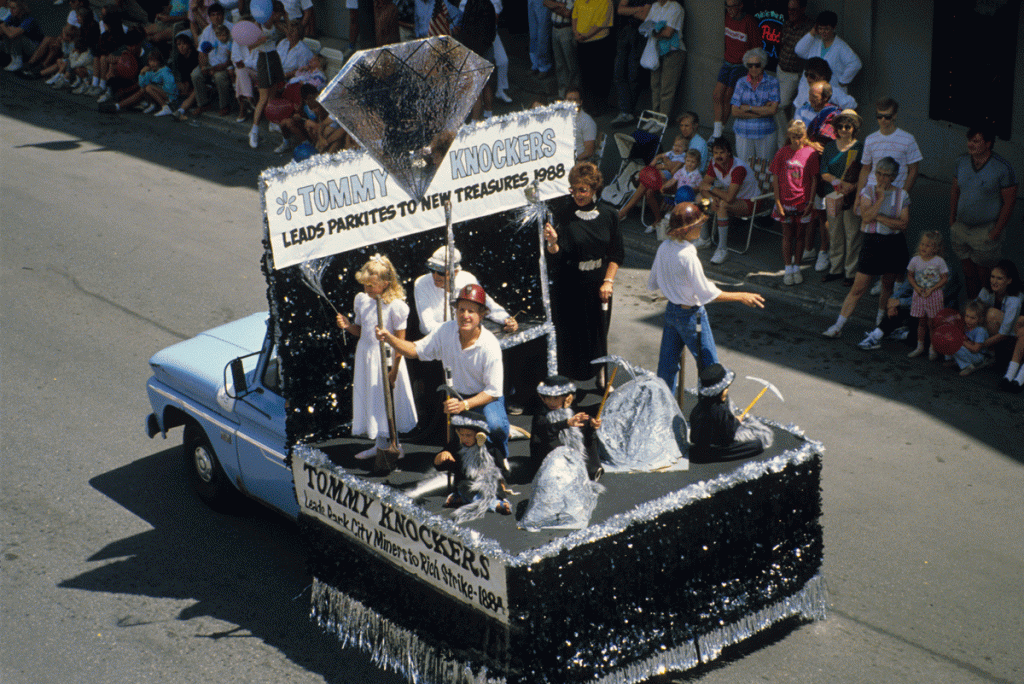If you’ve ever been in complete and utter darkness then you probably remember how your hearing was suddenly sharper in lieu of eyesight. Gary Kimball once described such an experience in a mine emphasizing that “minute sounds are amplified many times over. A falling pebble…the sign of an impending cave-in?…A distant echo…maybe there’s truth in all those ghost stories?” The absence of light doesn’t just awaken the other physical senses. It also sparks the imagination.
Generations of miners before Kimball let their imaginations run wild in the stygian darkness underground. Stories related to mines proliferated, but the most widespread superstition was belief in Tommy Knockers brought to the United States by Cornish miners. A Cornish ballad published in Treasure Mountain Home (p.22-23, revised edition), a locally-written history of Park City, describes Knockers as “the souls of dead miners…locked in the rock wall.” Sometimes seen as benevolent spirits warning miners of cave-ins and sometimes as evil creatures actively causing death and injury, the phantom tapping of the Knockers’ picks was always “a last an’ awful sign!”
The Knockers’ tapping was really nothing more than air popping in subterranean pockets and settling timbers underground. They became a metaphor, however, for people or groups who were adverse to mining companies’ interests and “knocker” and “knocking” became slang terms used to describe them and their actions. A Park Record article from 1910 describes a publication in Salt Lake which “with a little ‘hammer’… devotes several pages in its December number ‘knocking’ the Daly West and Daly Judge properties.” An article published two years later that also discussed the negative effects of knockers on mining interests stated that “knocking signifies to injure or destroy,” further tying naysayers to their destructive counterparts in Cornish folklore.

Credit: Park City Historical Society and Museum, Rademan Photograph Collection
It didn’t take long for “knockers” and “knocking” to apply to people and situations outside of the mining context. Soon both terms referred to people who lacked civic pride, opposed change, and were overly critical of their friends and neighbors. Even so, references to the original mining superstition remained bound up with the expressions. A poem in a 1914 issue of the Park Record that encouraged readers to silence local critics says, “When someone gets his hammer out/ To knock his brother man,/ Get busy too;/ It’s up to you – / Knock knocking all you can.”
Numerous mines throughout the West are now defunct, but the legacy of Tommy Knockers still carries on in the modern vernacular. Current sayings like “knock it off!” or “don’t knock it ‘til you try it” might be related to earlier slang derived from Knockers’ destructive natures. Still, whether in reference to real people or mythological creatures, knockers and knocking simply represent the very human tendency to explain away or minimize fear of the unknown. Rather than giving leave of your senses and letting your imagination run away, it’s worth considering the Park Record’s advice from years past: “Remember the fact that the knocking act/ Requires no brains at all.”